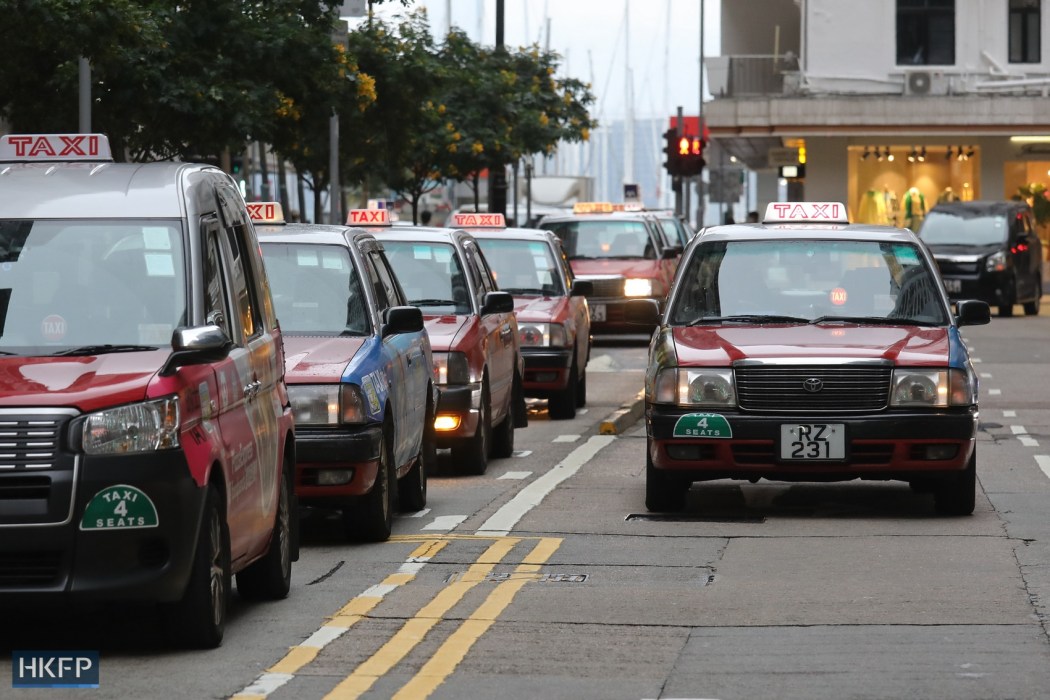Hong Kong’s new arrangement for journalists wishing to access the government’s vehicle registry is inconsistent with the city’s constitutional guarantees of press freedom, a lawmaker has said.

Pro-establishment lawmaker Doreen Kong told an RTHK programme on Monday that press freedom was guaranteed by Article 27 of the Basic Law, the city’s mini-constitution. But a new requirement that reporters must obtain permission from the transport chief to access the vehicle registry could impact journalism in the city, she added.
“[Press freedom] is a basic right. Why does it have to be approved by somebody?” the lawmaker asked in Cantonese.
Kong’s comment came after the Transport Department revised the application process to review vehicle owners’ information on the registry. The policy, announced last Friday without prior public consultation, became effective on Monday.

Under the new rules, journalists must submit a written application “under exceptional circumstances” directly to the transport commissioner to access the vehicle registry.
Commissioner for Transport Angela Lee said last Friday that the revision was made in light of a Court of Final Appeal ruling involving investigative journalist Bao Choy. Last June, the top court quashed Choy’s conviction over making false statements to access the vehicle registry for an investigation into the Yuen Long mob attack during the 2019 protests and unrest.
Choy, then a freelancer for RTHK’s documentary series Hong Kong Connection, accessed the registry by selecting “other traffic and transport related matters” from a dropdown menu on the online application system. She was fined HK$6,000 in April 2021 for knowingly making false statements to the authorities.
However, the five judges of the Court of Final Appeal ruled that serious journalism should not be excluded from “other traffic and transport related matters” and set aside her sentence. Responding to the ruling, Chief Secretary Eric Chan said the government would review the existing application process.

The new system no longer included such option. Lee on Friday said journalists who wished to access the records should send a written submission and she would personally review their applications to determine whether “public interests outweighed the vehicle owner’s rights to privacy.”
Lee also said that there was no “objective” criteria to evaluate applications and each would be reviewed on a case-by-case basis. The commissioner stopped short of specifying the time required to process such application.
Public interest
Kong said on Monday that not only did the Basic Law guarantee press freedom, the city’s privacy law also had provisions exempting journalistic work from breaching the law. “I don’t see why the Commissioner [for Transport] gets to have so much power over [reporting],” she said.

She urged authorities to provide reporters with the right to access information and clearly define the meaning of public interest. An appeal mechanism should also be implemented, Kong added.
Last Friday, the Hong Kong Journalists Association, the city’s biggest press group, said that it was “inappropriate” for the commissioner to define “public interest” and interfere with journalistic work. The group said as long as the commissioner could confirm the authenticity of a reporter, it should be a sufficient grounds for granting access to official records.
The group added that they were seeking legal advice and would not exclude using legal means to strive for the right to report.
Support HKFP | Policies & Ethics | Error/typo? | Contact Us | Newsletter | Transparency & Annual Report | Apps
Help safeguard press freedom & keep HKFP free for all readers by supporting our team

LATEST FROM HKFP
HKFP has an impartial stance, transparent funding, and balanced coverage guided by an Ethics Code and Corrections Policy.
Support press freedom & help us surpass 1,000 monthly Patrons: 100% independent, governed by an ethics code & not-for-profit.










